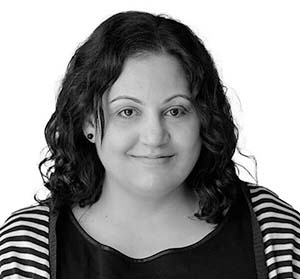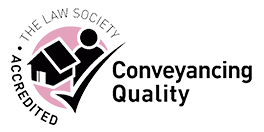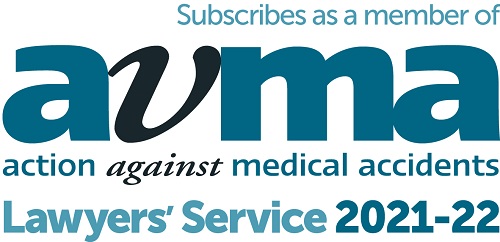Bringing a medical negligence claim
Bringing a Medical Negligence claim can be very daunting and seem like a complicated process. It is indeed a complex area of law that requires specialist assistance. However, it should not be a daunting proposition. We can help you every step of the way and take much of the burden for you. Timescales are very difficult to predict, even more so in Covid-pandemic times! Rather than looking at the claim and it’s various aspects as a whole, it may be worth just taking a look at some of the steps to be taken as individual parts that add up to a whole.
Here we try to summarise, as briefly and simply as possible, the medical negligence procedure. There are of course different requirements for every case and this is not a definitive ‘plan’ but generally these are the steps that need to be taken.
Do you have a claim?
The first step, contact us! Though you may believe you have suffered an injury following a medical procedure, this does not automatically mean that the medical professionals were negligent and you will be entitled to any compensation. As a Claimant, the burden of proof is on you to show that negligence occurred. Talk to us in the first instance and we can advise early on whether or not we think you have a claim and can help.
In order to have a successful medical negligence claim, we must be able to prove to the court, the following:
- That the Defendant (i.e. hospital/treating clinician) owed you a duty of care;
- That this duty of care was breached (that is, no body of professionals operating in the same specialism at the same time would consider the care provided was reasonable); and,
- That this breach of duty resulted in some loss/injury (i.e. harm or damage). This is known as ‘causation’, i.e. but for the breach, you would not have suffered the loss.
Even in cases where we find there has been a breach, for example, a delay in diagnosis, if it transpires that the harm or damage would have occurred in any event (regardless of the breach), then the claim will not succeed as we cannot prove causation.
Independent medical experts are used to provide their opinions as the courts will need this to evaluate the claim. We take arranging this off your hands during the claim.
You can see the importance of getting specialist help and we do urge you to contact us if you require further information.
Funding
There are forms of funding in place to ensure that if the claim is unsuccessful, you are covered against any adverse costs. These vary from claim to claim due to differing circumstances and we can advise you fully. If you do have a claim with reasonable prospects, we will need to establish whether you had insurance at the time of the event that is adequate to assist (before the event - ‘BTE’ insurance – often found in legal expenses policies for building and contents insurance) or whether we can offer the No-Win No-Fee Agreement and insurance. Any initial assessment of your case to determine whether we can assist is done free of charge.
Records
Once funding is set up, we will then need to obtain a copy of your medical records in order to get the full picture of the treatment you have been provided with. This will often include your GP records, records from any/all hospitals you have attended and will cover the period before and after the alleged incident. This is to ensure that we have a complete picture of how your life has changed since, for example. you were in good health prior to the incident but now you require physiotherapy twice a week and are on regular medication which would not have been required otherwise. They also help us to determine causation in that we can assess pre-existing medical conditions and see what additional injury has been caused by the alleged negligence. The records also often assist with breach of duty in that they identify where the negligence occurred, particularly in light of the duty of candour.
Instructing experts
Once we have a copy of your records, we will instruct appropriate independent experts to comment on the care you have received and whether they can support breach and/or causation. The expert/s will usually be the same specialism as the medical professional that was treating you at the time for breach of duty reports. For instance, if you are alleging that a radiographer missed your fracture that was clearly visible in the x-ray, we’ll ask a radiologist to comment on the x-ray and decide whether this was reasonable. Causation, condition and prognosis evidence is obtained from specialisms relating to the injury itself and ongoing treatment needs, for example, orthopaedic surgeons in our fracture example.
Value of the claim
Once we know that we have supportive breach and causation evidence, we can start reviewing the likely value of your claim. The expert evidence will help us to determine the value of your claim in outlining causation and prognosis. We will also look to collating information in relation to loss of earnings, care and assistance, medical treatment costs, and other out of pocket expenses incurred in the past and future, which come under the heading of Special Damages. The value of your claim depends on your individual circumstances. For example, the loss of some fingers would obviously impinge the lives of most people, but this would have a more detrimental effect on say, a painter and decorator, who would no longer be able to work and would need to seek alternative employment as a result. Another example would be facial scarring. Again, whilst this would affect most people, this would have a greater effect on a model for instance, who would no doubt be unable to continue his/her career. We have the experience to be able to take into account all factors and provide an individual valuation for your claim based on your specific needs.
Presenting a case/ letter of claim
We will write to the Defendant/s (the GP Surgery, the Hospital/s etc.) stating that we believe they have been negligent and outline our allegations of breach and causation. We invite them to do their own investigations and if we are able to at that early stage we can put forward an offer with the Letter of Claim to settle the claim to expedite settlement. Often, we will not be in a position to do this as we are waiting for injuries to settle, or the like, Defendants have 4 months to respond to our Letter of Claim to undertake their own assessment of the claim. This involves them obtaining a copy of the medical records and seeking their own expert opinion, before responding formally via a Letter of Response.
Considering the Letter of Response
The Letter of Response should run through each allegation and state clearly whether the Defendant accepts or denies this. Where they have denied the allegation, they will need to provide reasoning for this (it will usually be based on the evidence of their expert). If the Defendant accepts liability, we can proceed to negotiate a settlement (i.e. compensation for your injury). Where liability has been denied, we can present a Letter of Challenge – that is, challenging the opinion of their expert by asking further questions (with input from our expert). If we still cannot reach a resolution, we must decide to either discontinue the claim or issue proceedings (i.e. take the claim to court).
Court proceedings
The majority of cases are settled before trial, but often cases need to be issued at court. This may be because Court Directions are needed to take the next steps or that simply the sides cannot agree and the matter must be decided by the Judge. Again, we have the expertise in this area to successfully navigate your claim through these various Directions and trial. Provided that our experts continue to support the claim after pressing analysis by ourselves and often your barrister, then the claim will proceed. There are too many nuances and aspects for us to outline here.







